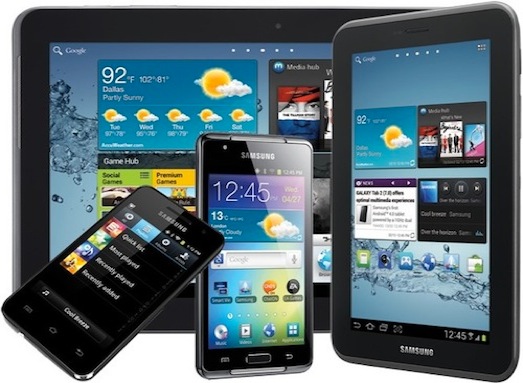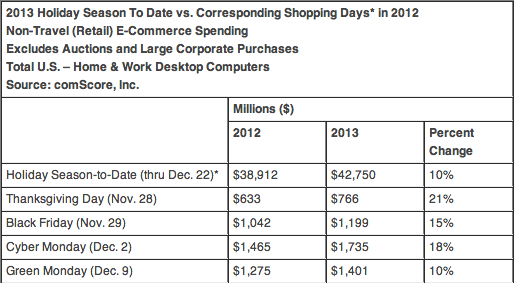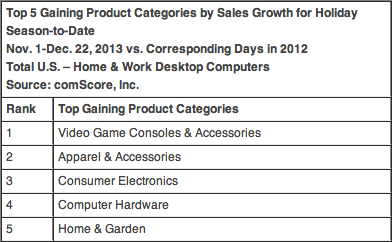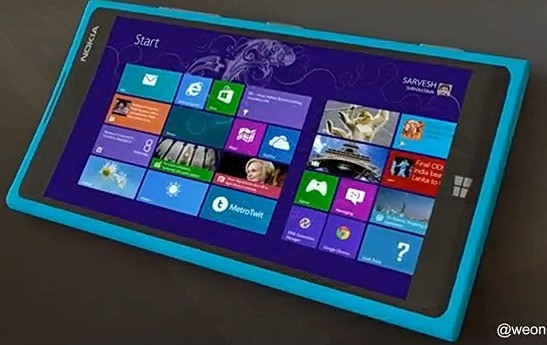It was another magical, amazing, revolutionary year
for Apple - at least according to Cupertino. From those of us beyond the
reality distortion field, however, Apple's efforts in 2013 weren't too
shabby - from a complete overhaul of iOS to a more recent deal that
could dramatically extend its presence in China.
There were some rough patches, of course. Apple's
stock price took a tumble this year, dropping from $700 in Sept. 2012 to
less than $400 by June, prompting discussion about whether Tim Cook
should step down as CEO.
Prices have rebounded a bit - sitting at $570 as of Monday - as people
turned their attention to new iPhones, iPads, and Macs, and Cook
promising "big things" for 2014.
But will we have to wait until the second half of
next year for something new like we did this year? It was largely quiet
in Cupertino for the first half of 2013, save for a 128GB iPad, prompting PCMag's Sascha Segan to wonder
why we weren't hearing any rumors about a spring Apple event. It was
not until June's Worldwide Developer Conference (WWDC) that we got our
first glimpse of what Apple was working on, from a redesigned "flat" iOS 7 to OS X Mavericks and the Mac Pro.
Apple's iOS 7 is "the biggest change to iOS since the
iPhone," Cook said during his WWDC keynote. Flat was the name of the
game, plus colorful icons, and an operating system that seemed to move
with you. Users finally got to check it out in mid-September, when iOS 7
landed on early iPhones ahead of the iPhone 5s and 5c launches. Despite some battery-drain issues and those duped by a waterproof scam, it was largely well-received.
As usual, rumors about the new iPhones made the rounds for months, with some speculating that Apple would finally embrace the larger "phablet" form factor.
When the iPhone 5s landed this fall, however, it was largely unchanged
from the outside, save for the new Touch ID-enhanced home button, while
the 5c arrived in array of Lumia-like colors.
There was a lot of discussion about whether the iPhone 5c
was going to be a low-cost smartphone that helped Apple break into
emerging markets. But at $99 with a two-year contract and several
hundred dollars unlocked, the 5c was not exactly a budget device. Cook
later said that Apple "never" envisioned
the 5c to be a low-cost iPhone and said those who wanted to save cash
could instead pick up the iPhone 4s. Most buyers flocked to the iPhone
5s, anyway, particularly the new gold version.
In April, T-Mobile became the last major U.S. carrier to land the iPhone, while just this week, Apple finally secured a deal with China Mobile. See what PCMag's Segan thinks about that deal.
The iPad, meanwhile, got its annual upgrade in October, with a Retina display iPad mini and lighter iPad Air.
Prior to the Retina iPad mini's release, there were reports that it
would be in short supply this holiday season due to supply constraints,
but right now, the device is available to ship in 1-2 days, according to
the Apple website.
Next up for Apple is the new Mac Pro,
orders for which started on Dec. 19. It's much smaller than its
predecessor but still packs a powerful punch. It won't arrive by
Christmas, however, as Apple currently puts the ship date in February. (Check out our unboxing to tide your over.)
Fighting the Good Fight
But while
Apple would surely prefer that any news about the company focus on its
product releases, Cupertino did make headlines on other topics,
particularly its legal battles.
There were a number of inquiries into its warranty
policy around the globe, for example, most recently in Australia. Execs
like Cook were also on Capitol Hill in May to defend Apple's tax strategy, while Cupertino gave up its fight to stop Amazon, Microsoft, and others from using the term "app store."
It did not give up, however, on its patent fight
against Samsung. Apple was dealt a setback early in the year when a
California judge dropped $450 million from a $1.05 billion Aug. 2012 settlement and ordered a new trial on certain aspects of the case. Ultimately, a jury awarded Apple $290 million
of the $450 million, or about $900 million in total, but Samsung is
appealing (again) and both sides will meet in the same court next year
for a totally separate case.
Meanwhile, in a coup for Apple, the White House agreed to overturn a ban on iPhones and iPads imposed by the International Trade Commission, and later declined to extend the same courtesy to Samsung.
Apple was not so lucky when it came to the DOJ's e-book price-fixing case. Cupertino was found guilty of colluding with publishers
to raise e-book prices and take down Amazon, charges that Apple
vehemently denies. All the publishers settled with the feds before
trial, but Apple soldiered on, and continues to insist that it did
nothing wrong, even in the face of a court-appointed monitor.
For more from Apple in 2013, check out the links below. In the meantime, it's all systems go for Apple's new spaceship campus, while Cook has said that he finds wearables intriguing so we might just get that iWatch yet.



























